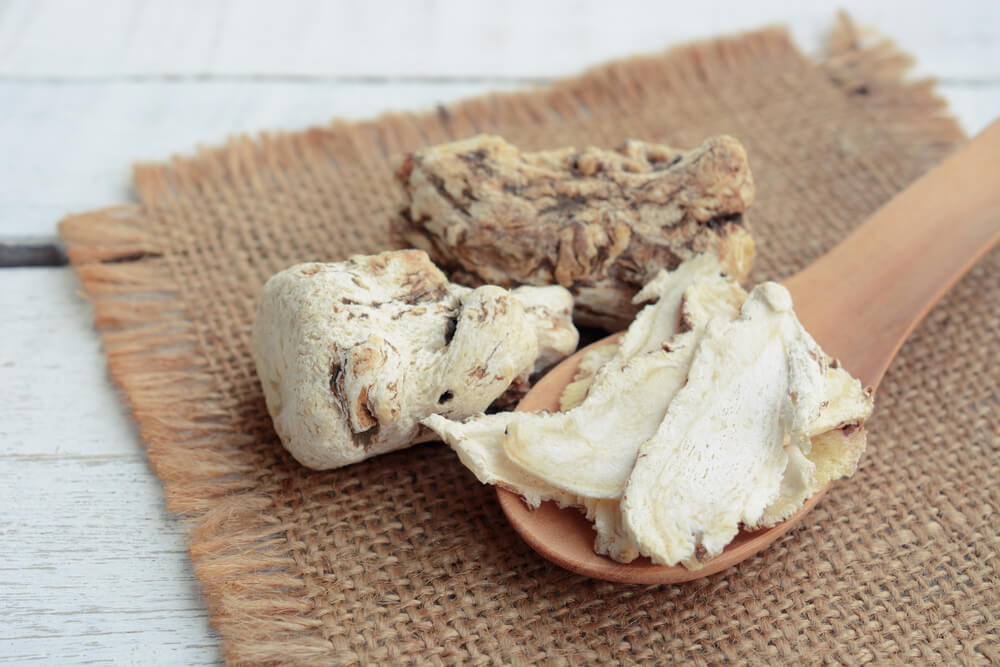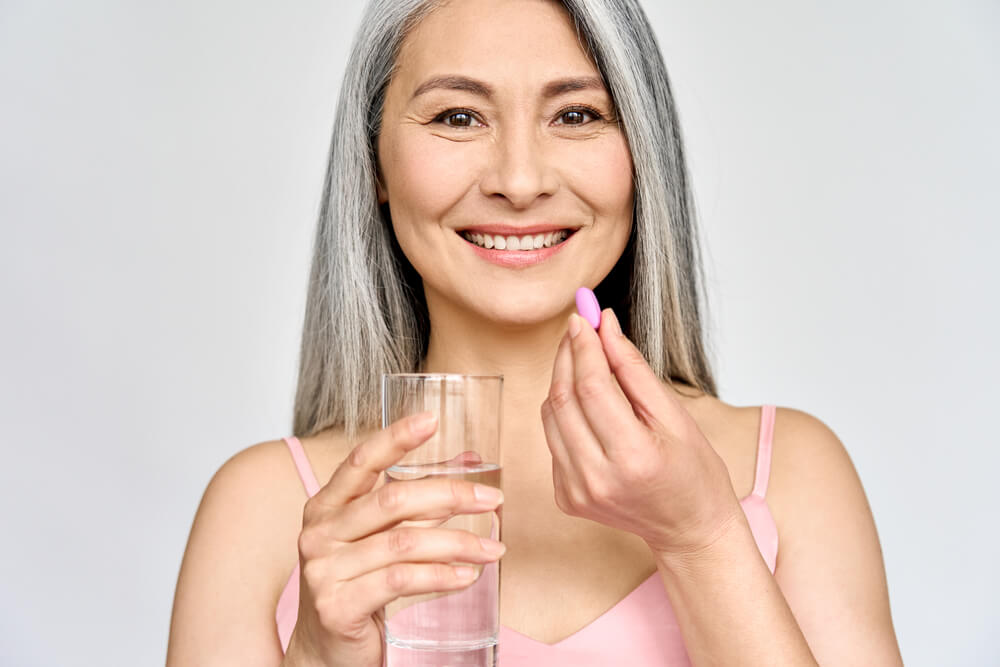The transition through menopause is a profound and natural phase in a woman’s life, bringing about a host of physical and emotional changes. As the body adjusts to declining hormone levels, many women experience symptoms such as hot flashes, mood swings, and sleep disturbances. In the quest for relief, menopause supplements have emerged as a popular avenue, offering a range of options to support women through this transformative period.
In this in-depth exploration, the team at Doral Beach Gynecology, experts on women’s wellness in Doral & Miami Beach, delve into the world of menopause supplements, evaluating the best choices and highlighting the benefits of natural supplements to empower your journey to well-being.
Understanding Menopause
Menopause, typically occurring between the ages of 45 and 55, represents the cessation of menstruation and the end of a woman’s reproductive years. This natural biological transition involves a decline in estrogen and progesterone production, leading to a variety of symptoms that can impact physical health and emotional well-being. Recognizing the unique challenges posed by menopause, women seek effective solutions to manage symptoms and enhance their overall quality of life.
Menopause Supplements: A Comprehensive Guide
Supplements for Menopause: A Multifaceted Approach
Menopause supplements encompass a diverse range of products, each designed to address specific symptoms and support overall well-being. These supplements often contain vitamins, minerals, and botanical extracts that aim to rebalance hormones and alleviate common menopausal symptoms.

Best Menopause Supplements: Navigating the Options:
Black Cohosh
Black Cohosh, an herbal supplement celebrated for its efficacy in alleviating menopausal symptoms, particularly hot flashes and night sweats, offers a natural and holistic approach to women navigating through this transformative phase. This botanical remedy is derived from the roots of the Black Cohosh plant, native to North America. Scientific studies suggest that Black Cohosh may exert its effects by influencing serotonin receptors, providing relief, and enhancing well-being during menopause.
The active compounds in Black Cohosh, including triterpene glycosides and phytoestrogens, are thought to modulate serotonin receptors in the brain. Serotonin, a neurotransmitter with widespread effects on mood and body temperature regulation, plays a crucial role in the manifestation of hot flashes. By interacting with these receptors, Black Cohosh may help stabilize the fluctuating levels of serotonin, thereby mitigating the intensity and frequency of hot flashes and night sweats.
While Black Cohosh is generally well-tolerated, it is essential for women to approach its use with caution, especially if they have a history of liver conditions. Consulting with healthcare professionals before incorporating Black Cohosh into a menopause management plan ensures personalized guidance and minimizes potential risks.
Vitamin D and Calcium
As menopause progresses, the risk of bone density loss and osteoporosis becomes a significant concern. Vitamin D and calcium supplements emerge as essential components of a menopausal wellness strategy, working synergistically to support bone health and overall well-being.
Bone Health Benefits
Vitamin D: Often referred to as the “sunshine vitamin,” vitamin D facilitates the absorption of calcium, a critical mineral for bone density. Adequate vitamin D levels are vital for maintaining bone strength and preventing fractures.
Calcium: A fundamental mineral, calcium is the primary building block of bone tissue. Supplementation ensures a sufficient supply for bone maintenance, reducing the risk of osteoporosis-associated fractures.
Combining Vitamin D and Calcium
The combination of vitamin D and calcium is key to optimizing their benefits. These supplements complement each other, fostering the effective absorption and utilization of calcium in the body. Women are encouraged to meet recommended daily intake levels, either through diet, supplements, or a combination of both, to support bone health.
Soy Isoflavones
Derived from soybeans, soy isoflavones present a natural and plant-based alternative to hormone replacement therapy (HRT) during menopause. As phytoestrogens, these compounds share structural similarities with estrogen, allowing them to interact with estrogen receptors in the body.
Isoflavones, such as genistein and daidzein, act as weak estrogen agonists or antagonists, depending on the hormonal context in the body. This dual nature enables them to modulate estrogenic activity, potentially alleviating menopausal symptoms such as hot flashes and vaginal dryness without the side effects associated with synthetic hormones.
While soy isoflavones offer a promising natural alternative, it’s crucial for women with a history of estrogen-sensitive conditions, such as certain breast cancers, to consult healthcare professionals before incorporating these supplements into their regimen.
Omega-3 Fatty Acids
Renowned for their anti-inflammatory properties, omega-3 fatty acids found in fish oil present a multifaceted approach to menopause support. Beyond their well-documented cardiovascular benefits, omega-3 fatty acids offer unique advantages for managing joint pain and promoting emotional well-being during menopause.
The hormonal fluctuations during menopause can contribute to joint pain and inflammation. Omega-3 fatty acids, specifically eicosapentaenoic acid (EPA) and docosahexaenoic acid (DHA), exhibit anti-inflammatory effects that may help reduce joint discomfort, enhancing overall mobility and comfort.
Omega-3 fatty acids play a crucial role in brain health and neurotransmitter function. Studies suggest that these essential fats may contribute to improved mood and emotional well-being, potentially mitigating symptoms such as mood swings and irritability associated with menopause.
While omega-3 supplements are generally well-tolerated, it’s advisable for individuals to choose high-quality fish oil supplements, ensuring purity and potency. Additionally, those with seafood allergies or specific medical conditions should seek guidance from healthcare professionals before incorporating omega-3 supplements into their routine.
Natural Supplements for Menopause: Harnessing the Power of Nature
Dong Quai
Dong Quai, often referred to as the “female ginseng,” stands as a time-honored traditional Chinese herb that has been utilized for centuries to address various aspects of women’s health. With a reputation for promoting hormonal balance, Dong Quai is particularly renowned for its potential to alleviate menopausal symptoms such as hot flashes and vaginal dryness.
Dong Quai is believed to possess phytoestrogenic properties, meaning that its active compounds can mimic the actions of estrogen in the body. This can be especially beneficial during menopause, a period characterized by declining estrogen levels. By promoting a balance in estrogen, Dong Quai may help regulate hormonal fluctuations, easing the intensity and frequency of hot flashes while addressing issues like vaginal dryness.
While Dong Quai has a long history of use and is generally considered safe when used appropriately, it’s crucial for women to consult with healthcare professionals before incorporating it into their menopause management plan. Individual responses to herbal supplements can vary, and personalized guidance ensures optimal safety and effectiveness.

Chasteberry (Vitex)
Chasteberry, also known as Vitex, has a rich historical background in herbal medicine and is recognized for its potential to regulate hormonal imbalances. Menopause often brings about shifts in hormone levels, contributing to symptoms like breast pain and mood swings. Chasteberry has been traditionally employed to address these hormonal fluctuations and may offer relief during this phase of a woman’s life.
Chasteberry works by influencing the hypothalamus and pituitary glands, which play a key role in hormonal regulation. By modulating the production of certain hormones, including prolactin, chasteberry may contribute to hormonal balance, potentially mitigating symptoms like breast tenderness and supporting mood stability.
As with any herbal supplement, individual responses to Chasteberry can vary. Consulting with healthcare professionals is essential, especially for women with pre-existing hormonal conditions or those taking medications that may interact with this herbal remedy.
Red Clover
Red Clover, recognized for its vibrant pink blossoms, is a botanical supplement rich in isoflavones—compounds that exhibit phytoestrogenic activity. This natural source of phytoestrogens makes red clover a promising option for women seeking relief from menopausal symptoms, particularly hot flashes and night sweats.
The isoflavones in ted clover, including genistein and daidzein, can interact with estrogen receptors in the body. This interaction may help regulate hormonal fluctuations, providing a natural and gentle approach to symptom management during menopause.
While ted clover is generally well-tolerated, it’s advisable for women to consult with healthcare professionals before incorporating it into their menopause support regimen, especially if they have a history of estrogen-sensitive conditions. This ensures personalized guidance and minimizes potential risks.
Combating The Symptoms of Menopause The Natural Way
Menopause supplements, ranging from herbal remedies to essential vitamins, offer a diverse toolkit to navigate the challenges of this significant life transition. By understanding the benefits of supplements for menopause, exploring the best options available, and considering the advantages of natural menopause supplements, women can make informed choices to empower their journey to well-being. Remember, achieving optimal health during menopause is a multifaceted endeavor that combines the benefits of supplements with lifestyle modifications and professional guidance, ensuring a holistic approach to women’s health and well-being.


